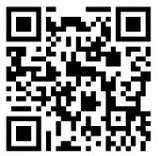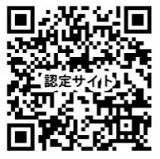Since 2020, the Ministry of Education, Culture, Sports, Science and Technology has implemented the "GIGA School Program" aimed at elementary and junior high school children. This initiative aims to provide one information terminal (such as a tablet) for each student (and each teacher) and establish a high-speed network at each school. Recently, the ICT surroundings in childcare facilities have shown a gradual improvement. Easy access to the internet anywhere within the facility will bring about changes in ECEC activities. In addition, the computerization of administrative systems in ECEC will give the teachers and staff easier access to parents and enhance communications with them. Using ICT, ECEC teachers' tasks, which up to now have been conducted manually, can be digitized. They will be able to discover and make attempts at new things through these changes.
However, most childcare facilities need to learn more about the effective use of ICT in ECEC and seek out suitable methods through trial and error. Therefore, we created the "Guidebook for ICT surroundings and utilization that connect childcare facilities and families" to answer the questions of ECEC teachers, such as how to set up ICT surroundings at the facility and what kind of tablets should be used by children.
Result 1: Guidebook for ICT surroundings and utilization that connect childcare facilities and families
The "Guidebook for ICT surroundings and utilization that connect childcare facilities and families" is composed of the following check items:
Establishment of ICT surroundings at childcare facilities
- Does your facility have effective ICT surroundings? (Part 1)
- Does your facility have effective ICT surroundings? (Part 2)
- What effects can your facility experience after starting video lessons and online ECEC activities?
- What issues must your facility address after starting video lessons and online ECEC activities?
- What is "information literacy" required for ECEC teachers?
- What do parents expect in the facilities' ICT use?
- Has your facility introduced a privacy policy?
- Does your facility ask children and parents to maintain rules for ICT use?
ICT use by ECEC teachers and children
- Should ICT use be only for answering children's questions?
- Do you use ICT to teach children the enjoyment of connecting with others?
- Do you use ICT to show children what the pets are doing after preschool is over for the day?
- Do you use ICT to encourage children who have just started preschool life and feel somewhat lost?
- Do you use ICT to record children's activities and have time to reflect on your teaching based on such recordings?
- Do you value the process in which photos taken by children turn into creative work?
One typical example of ICT use among ECEC teachers is to search for and find correct answers to children's questions. However, should answering children's questions through the use of ICT be the only way to make use of ICT? Children may come to regard ICT as simply a tool to resolve their questions. It is also important to use ICT to let children "think," not only to satisfy their interests. In addition, ECEC teachers can value the process of learning and use ICT in their activities by letting children use application software to learn the process of how things grow or change. They should ensure that children are learning things voluntarily and through exploration while communicating, sharing ideas, and collaborating with other peers in their play activities through ICT.
The above points are summarized in the "Guidebook for ICT surroundings and utilization that connect childcare facilities and families." To review the guidebook, please access the link below (in Japanese only).
http://hotta-lab.info/kids/2021/

Result 2: Development of the checklists for ECEC teachers' information literacy and childcare facilities' IT utilization, and the ICT certification system
When using ICT in ECEC, teachers must acquire operating skills and specific knowledge such as information ethics. We defined the term "information literacy" specifically for ECEC teachers as the "ability to collect information necessary for ECEC using computers and other IT devices as needed; organize, edit, disseminate, and effectively utilize such information during their ECEC activities; and understand and support children's ICT use." Once that was established, we developed a checklist to confirm the degree of teachers' information literacy.
The "Information Literacy Checklist for ECEC Teachers" is composed of the following check items:
- I can create letters to parents and informative materials using a tablet/PC.
- I can collect information for ECEC activities using a tablet/PC by searching websites.
- Currently (or when suitable ICT surroundings are available), I can display photographs and videos on a large TV screen or operate a projector using a tablet/PC to reflect on ECEC activities.
- Currently (or when suitable ICT surroundings are available), I can stimulate children's interest and curiosity using tablet/PC applications and the internet.
- I can search for information ethics such as copyrights and image rights on the internet, which I should be aware of as an ECEC teacher.
- Currently (or when suitable ICT surroundings are available), I can take photographs and videos of ECEC activities using a tablet or digital camera and share them with other teachers via the internet.
- Currently (or when suitable ICT surroundings are available), I can provide children with opportunities to take photographs using a tablet or digital camera and play with applications.
- Currently, I am aware of the rules and manners which apply when children are using a tablet or digital camera.
- Currently (or when a suitable ICT environment is available), I am aware of and can manage children's screen time, viewing distance, and other requirements for children's health when they are using tablets.
- I save data files to record children's development process using a tablet/PC.
- Currently (or when suitable ICT surroundings are available), I can show parents photographs and videos of ECEC activities using a tablet or digital camera when they come to pick up their children or on similar occasions.
- Currently (or when suitable ICT surroundings are available), I can distribute videos of ECEC activities through a cloud service for parents through collaboration with other ECEC teachers.
- Currently (or when suitable ICT surroundings are available), I can stream the video content of ECEC activities through collaboration with other ECEC teachers.
- I can troubleshoot basic problems when using tablets/PCs.
To promote the use of ICT in ECEC, childcare facilities must have adequate ICT surroundings. By establishing adequate ICT surroundings and promoting IT utilization, childcare facilities can communicate closely with families. Therefore, a checklist was created for childcare facilities to confirm their IT utilization status.
The "IT Utilization Checklist for Childcare Facilities" consists of the following check items:
- An administrative system for ECEC has been implemented, resulting in the efficiency of work tasks.
- Wi-Fi access is provided within the facility, and teachers use the internet in the staffroom and other places.
- Each teacher in charge of a class is provided with one PC or tablet.
- There is a website for the childcare facility which is updated regularly.
- Currently, videos taken during ECEC activities are distributed to families, etc.
- Online ECEC services are currently provided only for seasonal events.
- Formulated guidelines are established for handling personal and copyrighted information obtained through IT utilization.
- Tablets are available for children (even if shared with teachers).
- Online childrearing lectures and counseling sessions are held to provide parental support several times per year.
- Questionnaire surveys are conducted online for parents via the internet.
- Documentation containing the photos and videos of children's activities for each event is created and shared among teachers using a cloud service.
- ICT training programs for ECEC teachers are held several times per year.
- A member of the ICT personnel is appointed to be in charge of video streaming and online ECEC services.
With the use of these checklists for ECEC teachers and childcare facilities, we also established a certification system to certify teachers' information literacy and childcare facilities' IT utilization. If you are interested, please make use of our certification system. For more information, please access the link below (in Japanese only).
http://hotta-lab.info/kids/2021/nintei.html

Certification Process
- Access the "Information Literacy Checklist for ECEC Teachers" or the "IT Utilization Checklist for Childcare Facilities" on our website and answer the questions.
- Send your answers to the principal investigator (Hiroshi Hotta at Sonoda Women's University). Your answers will be quantified and the score will be calculated. If the score reaches a certain criteria value for certification, you will be notified of the certification via E-mail (if the score does not meet the criteria, you will also be informed).
- Send an E-mail to us in return explaining your plan to improve any inadequate areas identified by the checklist.
- You will receive certification.
In the months ahead, there is a plan to post instructive video materials online to explain the "Information Literacy Checklist for ECEC teachers" and the "IT Utilization Checklist for Childcare Facilities"
Research Investigators
- Hiroshi Hotta, Sonoda Women's University
- Yoichi Sakakihara, Ochanomizu University
- Tomomi Sato, Aichi Shukutoku University
- Koichi Yoshizaki, Oita University
- Takayuki Konno, Meisei University
- Taiichiro Okubayashi, Osaka University
- Hirotsugu Tazume, Kyoto University of Education
- Ayumi Sato, Shimane University
- Aiping Liu, Child Research Net (CRN)
- Junko Ogawa, Child Research Net (CRN)
- Keiko Katsumi, Angel Academy, Inc., Angel Nursery School.
 Hiroshi Hotta
Hiroshi HottaProfessor Hotta was born in 1962 in Osaka City, Osaka Prefecture, and graduated from the Faculty of Informatics, Kansai University Graduate School. He is currently a professor at the Faculty of Human Education, Sonoda Women's University. He specializes in education technology and media education. He has been working on developing educational curricula and methodologies adopted for informatization in child education, ranging from preschool to secondary education. He has also conducted research on early childhood education and media, and has been sponsored by the scientific research fund for many years.
He is currently engaged in the collaborative research project "Keep On Playing: development of the framework for ICT utilization in ECEC" (as Principal Investigator); Minoh city's "project to promote the utilization of advanced technologies and educational data for future school/educational settings" (as Academic Expert); the "educational environment reinforcement project utilizing the functions of educational facilities for young children's learning" at Nanatsumatsu Youchien sponsored by the Ministry of Education, Culture, Sports, Science and Technology (as Research Committee Member); and the "ICT utilization educational advisor" sponsored by the Ministry of Education, Culture, Sports, Science and Technology.
His main publications include "Young Children and Media" and "GIGA School Program: a classroom of early elementary school children promoting the utilization of ICT under the theme of One Device for One Student."
- [Japan] Identifying Factor Structures and Determinants Involved in the Development of "Non" Cognitive Skills in Early Childhood
- [South Korea] Current Situation and Issues of Inclusive Education for Preschool Children in South Korea - II
- A Useful Comparison Table for Improving the Quality of ECEC--International Comparative Study on Free Preschool Education and Childcare (74th OMEP World Assembly and Conference)














